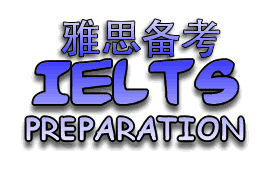This article provides important advice for IELTS Writing Task 2.
Task Response
Many candidates introduce their topic by writing something pointless like this:
This essay will discuss both sides and present my own opinion.
Such a statement is at best superfluous because it is probably what the essay question asked you to do anyway and there is nothing to be gained from repeating your task back to the examiner. In a worst case scenario, it is not what the task required and you will be demonstrating a failure to correctly interpret the task and will be on the path to band <5 for Task Response.
The reader wants to know exactly what your opinion is at the start. To get a band 7 or higher, your position must be clear throughout, which includes your introduction, as indicated in the public marking criteria:
7. presents a clear position throughout the response
6. presents a relevant position although the conclusions may become unclear or repetitive
5. expresses a position but the development is not always clear
So, what is a position? Your position lets the reader know where you stand on a particular topic or debate. Since every IELTS Task 2 question will include some kind of arguable statement with different possible perspectives, you need to decide where your position is between the two (or more) extremes.
Position 1 <—- Your position should be somewhere on this continuum —-> Position 2
Something to bear in mind when deciding your position is that sitting on the fence is surprisingly difficult in English. A statement like ‘there are advantages and disadvantages’ is not a position. To make it into a position requires the addition of something like ‘and these are equally balanced’, which can seem rather awkward. It is much easier to weigh in heavily on one side of the argument with a sentence like ‘the advantages far outweigh any negative effects’, or ‘the disadvantages are clearly of greater significance than the potential advantages.’ There are, of course, more sophisticated ways of expressing these positions depending on the context of the question prompt. As a general rule, the more specific your position (i.e. less generic), the better.
By the way, if you have studied English essay writing before, you may have learnt the terms ‘thesis statement’ or ‘stance’. These are basically different ways of saying the same thing as ‘position’.
Another important point associated with the position is that a conclusion is necessary (see the snippet from the band 6 descriptors in the box above). So as long as something resembling a conclusion is present at the end of your essay, you should at least meet the criteria for a band 6. If you are aiming higher than band 6, you will want to restate your position clearly and perhaps summarise the main points you made in your essay. A sentence structure like this would be helpful:
In conclusion, because [points you made in your essay], I am firmly of the opinion that [position stated with absolute clarity].
Lexical Resource
It is much easier to show off your vocabulary in Task 2 essays than in Task 1. Since they are so likely to appear in some form in the test, I recommend reading introductory material on the following topics. As you read, pay close attention to the sentence structures and vocabulary that is used and the practise using those same sentence structures and vocabulary in your own writing.
Recommended Topics
- Ecology: learn more sophisticated vocabulary about the environment and the place of human activity as part of the ecosystem.
- Health: every human being is concerned about health, from diet, obesity and exercise to genetic conditions and infectious disease, it is very likely that this topic will be somewhere in your test so learn some advanced vocabulary.
- Demographics: IELTS questions are deliberately designed to be as culturally universal as possible. This means that there will be questions that apply universally to human populations, such as births, education of children, gender, old age and death. In particular, make sure you know how to refer to different groups of people of different ages.

